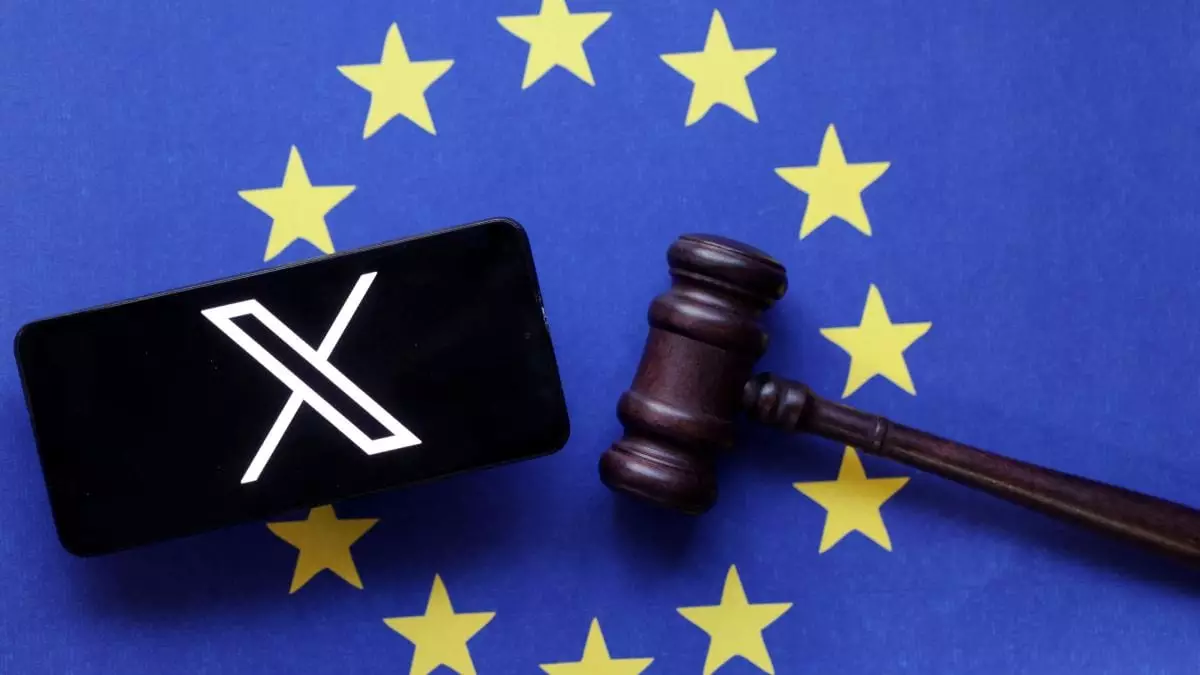The realm of social media has undergone significant scrutiny, particularly from legislative bodies across the globe. In Europe, regulators have introduced various frameworks aimed at regulating the influence and conduct of major technology companies, commonly referred to as “Big Tech.” At the forefront is the Digital Markets Act (DMA), a legislative framework designed to ensure fair competition and limit monopolistic practices among dominant online platforms. Recently, Elon Musk’s X social media platform has generated discussions regarding its status in relation to these impending regulations.
According to recent disclosures, X is not anticipated to be classified as a gatekeeper under the DMA. This classification is critical because it encompasses stringent obligations for companies that meet specific criteria, such as having over 45 million monthly active users and a market capitalization exceeding 75 billion euros. To date, X has asserted its non-qualifying status as an essential intermediary in the connection between businesses and consumers. This claim, if validated, could exempt X from many onerous provisions intended to increase competition and limit self-preferential treatment among services.
The stipulations of the DMA include requirements for interoperability among messaging services and the autonomy of users to select pre-installed applications freely. Such rules are designed to dismantle monopolistic behavior and ensure that no service is granted undue advantages over its competitors. However, as it stands, X’s claim of not being a gatekeeper may be a tactical maneuver to evade these potentially burdensome requirements.
The Implications of the Digital Services Act
While X may navigate some waters smoothly concerning the DMA, another tidal wave looms with the Digital Services Act (DSA). The DSA imposes a higher threshold for accountability, compelling large online platforms to expedite their efforts to combat illegal and harmful content. Non-compliance can trigger severe repercussions, including fines potentially amounting to 6% of a company’s annual revenue. As digital landscapes become breeding grounds for misinformation and other unlawful behaviors, platforms like X find themselves under heightened scrutiny.
The ongoing investigations into X regarding its adherence to DSA regulations highlight the complexities the platform faces in managing its content moderation policies. As public discourse increasingly critiques the responsibilities of such platforms, the importance of transparent and effective governance mechanisms becomes indisputable.
Looking forward, X must navigate a multifaceted regulatory environment in Europe. While it may temporarily escape the stringent controls of the DMA, its challenges are far from over. The scrutiny surrounding X not only concerns regulatory compliance but also its reputation and credibility in addressing the societal impacts of its platform.
For Musk’s venture, the balancing act of fostering a profitable business while adhering to evolving regulatory landscapes will be critical. X’s capacity to adapt and prioritize user safety alongside its operational model will determine its long-term viability in an increasingly regulated digital marketplace. As the European Commission continues its investigations, the outcome could reshape how X and similar platforms operate within the EU in the years to come.

